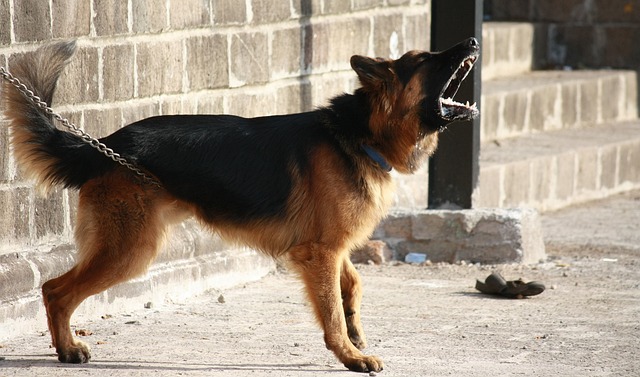International diplomats face complex challenges ensuring their security while representing their countries abroad. Diplomatic security services require cultural sensitivity, deep local knowledge, and proactive threat assessment to protect high-level officials in diverse environments. By integrating advanced training, specialized bodyguard services, and tailored strategies, these services enhance VIP protection, addressing potential threats and diplomatic protocols globally. This multifaceted approach prioritizes personal safety, fosters better international relations, and ensures robust high-level diplomatic security.
In today’s interconnected world, understanding the unique challenges of international diplomacy is paramount. This article explores tailored security protocols designed to navigate the complex landscape of global interactions. From executive protection for international diplomats to cultural nuances in diplomatic security services, we delve into best practices ensuring VIP protection for high-level officials. Through comprehensive threat assessments and innovative bodyguard services, we safeguard diplomats on the ground, fostering secure environments essential for successful diplomacy.
Understanding the Unique Challenges of International Diplomats' Security
International diplomats face unique challenges when it comes to their personal security. As they navigate highly diverse and often complex cultural landscapes, their safety becomes a delicate dance between diplomacy and protection. Executive protection for international diplomats requires a deep understanding of local customs, political climates, and potential threats that may not be immediately apparent to outsiders. Diplomatic security services must be agile and adaptable, ensuring the personal security of these high-level officials without compromising their diplomatic missions.
VIP protection for diplomats is not merely about physical safety; it involves cultivating relationships with local authorities, understanding protocol, and anticipating potential risks. Bodyguard services for international officials must be tailored to each unique situation, incorporating cultural sensitivity and expertise in high-level diplomatic security. These considerations are vital to ensure the well-being of diplomats as they represent their countries on the global stage.
Tailoring Executive Protection: Strategies for VIP Diplomat Safety
In the realm of executive protection, tailoring strategies to accommodate international and cultural nuances is paramount when safeguarding VIP diplomats. Each country possesses unique security protocols and cultural sensitivities that must be respected and integrated into comprehensive diplomatic security services. Personal security for diplomats becomes a complex task given their high-level positions and frequent travels across diverse landscapes.
Customized bodyguard services for international officials require an in-depth understanding of local laws, customs, and potential threats. These strategies encompass more than just physical protection; they involve cultural training for bodyguards to ensure they can navigate diplomatic protocols effectively. By combining advanced security measures with cultural awareness, VIP protection for diplomats becomes a robust shield against unforeseen challenges, fostering a secure environment both domestically and abroad.
Cultural Nuances in Diplomatic Security Services: A Global Perspective
Cultural nuances play a pivotal role in shaping the landscape of diplomatic security services worldwide. When providing executive protection for international diplomats and high-level officials, understanding local customs and traditions is paramount. Each country has its own set of cultural norms and expectations that can significantly impact how security protocols are perceived and executed. For instance, in some cultures, a more reserved and formal approach to personal security for diplomats may be preferred, while others might embrace a more relaxed and informal style.
Diplomatic security officers must adapt their strategies to navigate these nuances effectively. This includes understanding non-verbal cues, respecting local etiquette, and demonstrating cultural sensitivity when interacting with international officials. VIP protection for diplomats requires a nuanced approach that goes beyond physical safety, encompassing the diplomatic and social dynamics of their host countries. By embracing these cultural aspects, security services can foster better relationships, enhance operations, and ensure the smooth conduct of international relations.
Best Practices for Personal Security: Protecting Diplomats on the Ground
When it comes to executive protection for international diplomats, best practices involve a multi-layered approach that goes beyond basic personal security measures. Diplomatic security services must be tailored to the unique cultural nuances of each host country, ensuring that high-level diplomatic security is both discreet and effective. This includes thorough risk assessments, local intelligence gathering, and close collaboration with local law enforcement and security agencies.
VIP protection for diplomats often requires specialized bodyguard services for international officials. These services should be highly trained, culturally sensitive, and capable of adapting to the ever-changing environments in which diplomats operate. By prioritizing proactive threat assessment, advanced communication systems, and robust contingency planning, personal security for diplomats can be significantly enhanced. This ensures that these high-level officials are well-protected, even in foreign and potentially hostile territories.
High-Level Threat Assessment: Ensuring Comprehensive VIP Protection
In the dynamic landscape of global diplomacy, ensuring comprehensive executive protection for international diplomats is paramount. A high-level threat assessment forms the cornerstone of this strategy, meticulously scrutinizing potential risks and vulnerabilities associated with high-profile individuals such as diplomatic personnel. This process involves a deep dive into personal security for diplomats, factoring in their international assignments, cultural nuances, and unique exposure to diverse environments. By integrating these elements, diplomatic security services can craft tailored plans that go beyond basic bodyguard services for international officials.
The result is VIP protection for diplomats that’s both proactive and adaptive, addressing specific threats like targeted assault, kidnapping, or even state-sponsored espionage. Such measures demand a specialized approach, leveraging extensive training, advanced surveillance techniques, and discreet communication networks to safeguard these high-level individuals. This holistic approach ensures that the personal security for diplomats is not just reactive but proactive, thereby enhancing their safety and security during their international missions.
In an increasingly interconnected world, providing tailored security protocols that cater to the unique challenges of international diplomats is paramount. By understanding cultural nuances and implementing best practices in executive protection, we can ensure the safety and security of VIP diplomats on a global scale. Integrating advanced threat assessment methods and culturally sensitive diplomatic security services enhances comprehensive VIP protection, allowing for seamless operations and effective risk management worldwide. This holistic approach to personal security for diplomats is crucial in navigating the complexities of international relations.
